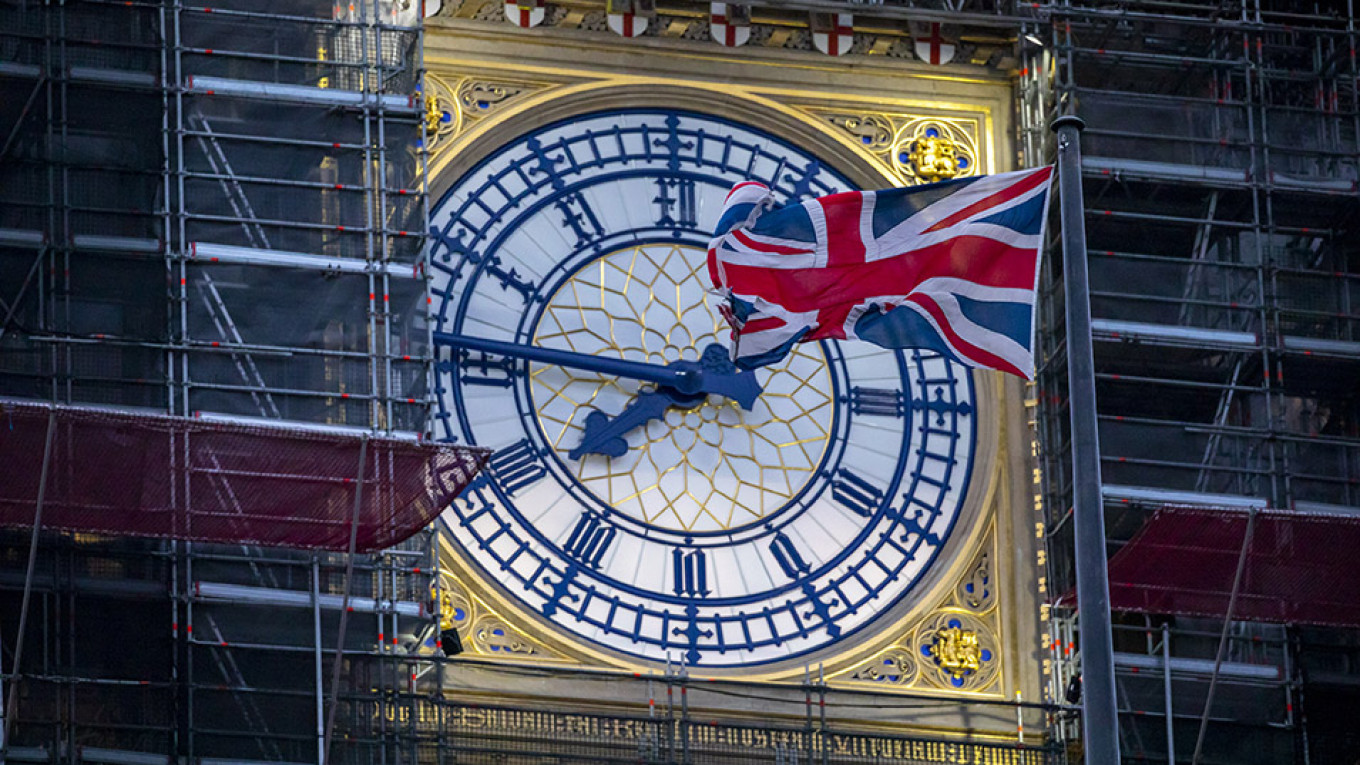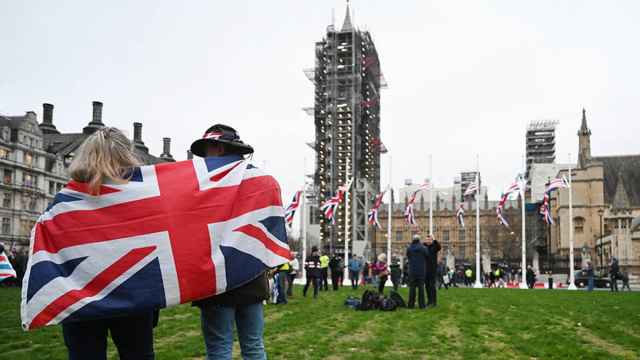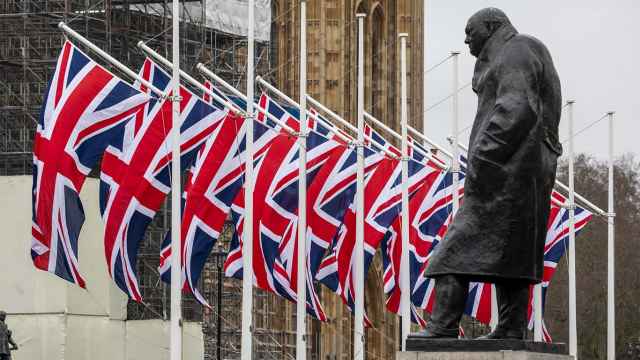I arrived back in Russia in the second week of January, 15 years after I last served in Moscow.
My first few weeks have reminded me of why I enjoyed living and working here so much the last time around. The warm welcome and high energy of Russian and international friends, colleagues and contacts, beautiful street lights (definitely bigger and brighter than in 2005), a wonderful range of parks, museums and concerts and — at last — some snow!
Representing the UK in Russia is never boring — and the pace of events in recent weeks has reinforced that impression: Proposed constitutional changes, a new prime minister, and moving ceremonies to mark the 75th anniversary of World War II. Of course our bilateral relationship remains difficult following the Salisbury attack. Russian actions in Ukraine and elsewhere cast long shadows. But despite these, close people-to-people, cultural, investment and trade links continue to flourish.
Today the UK undergoes a significant change. Three and a half years after the Brexit referendum, at 11pm GMT on Jan. 31, the UK will leave the European Union. Yards of newsprint have been dedicated to analyzing that decision, and the political process and negotiation which has been required to get this far. This is not the time or place to add to that analysis. But I do want to look forward.
Tomorrow, we start a new chapter in our history. The UK government is determined that we build on the strong relationships we have with the countries of Europe, and that, simultaneously, we develop partnerships further afield. We will continue to be an outward-looking, world-leading country.
We will demonstrate that through revised trading relationships with the European Union and with other countries, through ongoing UK engagement on difficult questions of global security including on Iran, Libya and Syria, and through our long-term efforts to help the world’s poorest through humanitarian aid.
The UK is the only major economy to meet the UN target of spending 0.7% of Gross National Income on development assistance every year.
We will continue to engage and lead on major thematic issues too: Over the last two years we’ve used our convening power to host major international meetings to secure global commitments on disability inclusion (July 2018), action to preserve wildlife and species by mobilizing against the illegal wildlife trade (September 2018) and a Global Conference for Media Freedom (July 2019). We also hosted the Commonwealth Heads of State and Government meeting in 2018 and the NATO Summit in 2019.
This year we will continue to be world leaders. The UK, with Italy, will host the next major climate change conference (COP 26) in Glasgow. Five years ago the world came together in Paris and agreed that action must be taken to limit global warming to less than 1.5 degrees. Recognizing our national responsibilities, the UK has made a legally binding commitment to achieve a carbon neutral economy by 2050.
We are transforming our economy rapidly. In 2019 the UK power generation sector managed without coal for a fortnight, for the first time since 1882. By 2025, and possibly sooner, coal will be completely absent from the UK energy generating mix.
But we can’t respond to climate change on our own. Global commitments to date are not sufficient to achieve the goals agreed in Paris. So, in Glasgow we will need to agree on practical steps to avoid triggering uncontrollable changes in climate.
Russia, of course, has much to offer on this agenda. As the world’s largest energy exporter, and host to the world’s largest boreal forests, Russia can play a significant role in the global energy transition and moves towards a safer planet.
For our part, after 47 years of EU membership, the United Kingdom is ready to chart a new path. We are looking forward, looking outwards, committed to the vital issues of today and playing our part in securing a better, fairer and safer world for tomorrow.
A Message from The Moscow Times:
Dear readers,
We are facing unprecedented challenges. Russia's Prosecutor General's Office has designated The Moscow Times as an "undesirable" organization, criminalizing our work and putting our staff at risk of prosecution. This follows our earlier unjust labeling as a "foreign agent."
These actions are direct attempts to silence independent journalism in Russia. The authorities claim our work "discredits the decisions of the Russian leadership." We see things differently: we strive to provide accurate, unbiased reporting on Russia.
We, the journalists of The Moscow Times, refuse to be silenced. But to continue our work, we need your help.
Your support, no matter how small, makes a world of difference. If you can, please support us monthly starting from just $2. It's quick to set up, and every contribution makes a significant impact.
By supporting The Moscow Times, you're defending open, independent journalism in the face of repression. Thank you for standing with us.
Remind me later.








